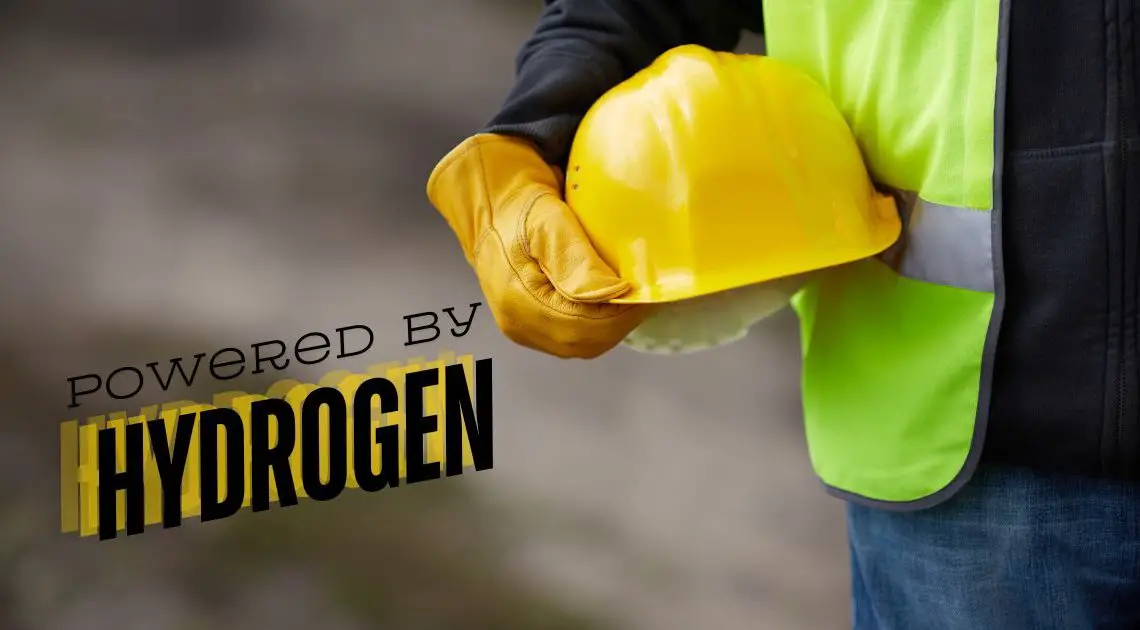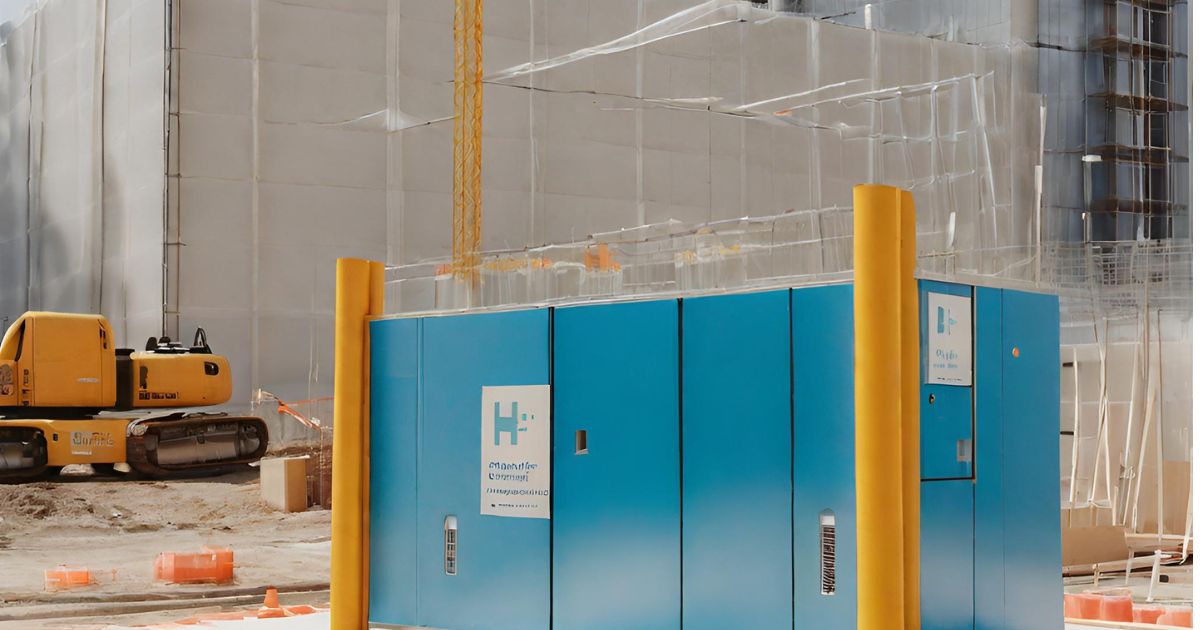
Industry Trends: An Overview of Hydrogen Fuel in Construction
April 23, 2024The construction industry, a significant contributor to global carbon emissions, is on the brink of a revolution spearheaded by the adoption of alternative fuels. Among these, hydrogen fuel emerges as a beacon of sustainability and efficiency. With its potential to drastically reduce the carbon footprint of construction operations, hydrogen fuel could transform the industry into a model of green innovation. This introductory exploration into the cost-benefit analysis of hydrogen fuel in construction aims to highlight the economic and environmental impacts, encouraging stakeholders to consider hydrogen as a viable alternative. Additionally, the shift toward hydrogen fuel is not just a step toward sustainability but also a potential avenue for economic growth and technological advancement within the sector.
Understanding Hydrogen Fuel Technology
Hydrogen fuel, often produced through the electrolysis of water, offers a zero-emission energy solution when used in fuel cells. In the construction industry, this technology could power everything from portable tools to heavy machinery. It’s important to learn about the basic mechanics of hydrogen fuel cells and their applicability in construction settings, which gives a foundational understanding for evaluating their benefits and limitations. The versatility and scalability of hydrogen technology make it particularly appealing for various construction applications, from small-scale renovations to large infrastructure projects, offering a clean alternative to traditional combustion engines.
Economic Implications of Adopting Hydrogen Fuel in Construction Industry
Transitioning to hydrogen fuel involves initial investments in new machinery and infrastructure, such as refueling stations and modified equipment. The financial aspects of integrating hydrogen technology in construction, including cost comparisons with traditional fossil fuels and long-term financial benefits, are significant. Although the upfront costs are considerable, the long-term savings in fuel costs and maintenance, coupled with potential government subsidies and incentives for clean energy technologies, could offset these initial expenses, making hydrogen a cost-effective solution in the long run.
Environmental Benefits
The environmental advantages of hydrogen fuel are compelling. By reducing harmful emissions, hydrogen can lead to cleaner construction sites and help align industry practices with global sustainability goals. Moreover, hydrogen fuel reduces noise pollution and lowers the ecological footprint of construction activities, contributing to broader environmental conservation efforts. This shift not only helps construction companies meet more stringent regulatory standards but also enhances their public image as leaders in sustainable practices, which can be crucial for securing contracts and attracting green-minded clients.
Stakeholder Perspectives
The perspectives of various stakeholders, including construction companies, environmental groups, and government bodies, are considered. The interests and concerns of these groups affect the adoption of hydrogen technology in the construction industry. Kansas City, known for its dynamic construction sector and innovative business environment, serves as a prime example of how local market conditions can influence technology adoption strategies. Particularly for construction firms there, the strategic use of digital marketing in Kansas City is vital since it allows these firms to effectively communicate their commitment to sustainable practices like the adoption of hydrogen fuel systems to their customers and future prospects. This not only educates the community about the environmental benefits but also positions these firms favorably in a highly competitive market, emphasizing their role as industry leaders in sustainability.
Hydrogen Production and Its Challenges
Despite hydrogen’s abundance, its production often lacks sustainability. However, focusing on green hydrogen production—using renewable energy sources—can address these concerns. Advancements in electrolysis technology and increased renewable energy capacity are critical to ensuring that hydrogen production meets the sustainability standards required by the construction industry. The drive towards localized production units could further reduce the carbon emissions associated with transporting hydrogen, enhancing the overall sustainability of this fuel option in construction.
Infrastructure Requirements
For a widespread adoption of hydrogen fuel, substantial changes in infrastructure are necessary. Evaluating the current state of infrastructure and understanding the requirements for a shift to hydrogen fuel are crucial. Establishing the necessary facilities and logistics for hydrogen transport and storage will not only support the construction industry but also promote economic development and job creation in local communities. Additionally, the development of such infrastructure could spur innovation in related industries, such as manufacturing and engineering, further driving economic growth and sustainability initiatives.
Regulatory and Safety Issues
The implementation of hydrogen fuel in construction raises several regulatory and safety concerns. It is important to adhere to existing regulations and develop stringent safety protocols for handling and storing hydrogen fuel. Addressing the potential risks associated with hydrogen, such as its high flammability, through enhanced safety measures and worker training can ensure a safe transition to this energy source. Moreover, these protocols can set a precedent for other industries, promoting wider adoption of hydrogen as a safe and viable energy source, thereby influencing broader regulatory frameworks and safety standards.
Case Studies: Hydrogen in Action
Examining case studies where hydrogen fuel has been successfully implemented offers valuable insights into its practical benefits and challenges. These real-world examples serve as benchmarks for best practices and lessons learned, which can guide future hydrogen-based projects to improve efficiency and safety. Further analysis of these cases can also reveal patterns of success that can be replicated on larger scales or in different regions, adapting to local conditions and market demands, thus proving the versatility and scalability of hydrogen fuel technology in the construction sector.
Comparison with Other Alternative Fuels
When compared with other alternative fuels, such as electric and biodiesel options, hydrogen stands out due to its high energy density and rapid refueling capabilities. These attributes are particularly beneficial for meeting the demanding requirements of construction equipment and schedules. Moreover, unlike some alternatives that require long charging times or are limited by colder temperatures, hydrogen fuel offers consistent performance under various environmental conditions, making it a reliable option for construction projects in diverse climates and settings.
Future Outlook and Technological Innovations
The future of hydrogen in construction is tied to ongoing technological advancements and reductions in costs. Innovations in fuel cell efficiency, hydrogen storage, and safe transport mechanisms will play a critical role in expanding hydrogen’s adoption across the industry. As these technologies mature and become more cost-effective, they will enable a broader range of construction companies to implement hydrogen solutions, potentially leading to a paradigm shift in how the industry views and uses energy. This technological evolution will also likely inspire new standards and practices, integrating hydrogen fuel into the core of construction operations.



 HFN News is your leading source for fresh hydrogen and renewable energy updates. Amid the fast-paced growth of hydrogen companies, we provide top-notch news and insights about this exciting sector. Our coverage spans from hydrogen cars to global sustainable initiatives, and we highlight the latest in green jobs and developing hydrogen hubs. We invite you to share your local hydrogen news and explore today’s renewable energy job listings on our site. Thanks for choosing HFN News as your trusted guide to the hydrogen and renewable energy world!
HFN News is your leading source for fresh hydrogen and renewable energy updates. Amid the fast-paced growth of hydrogen companies, we provide top-notch news and insights about this exciting sector. Our coverage spans from hydrogen cars to global sustainable initiatives, and we highlight the latest in green jobs and developing hydrogen hubs. We invite you to share your local hydrogen news and explore today’s renewable energy job listings on our site. Thanks for choosing HFN News as your trusted guide to the hydrogen and renewable energy world!
